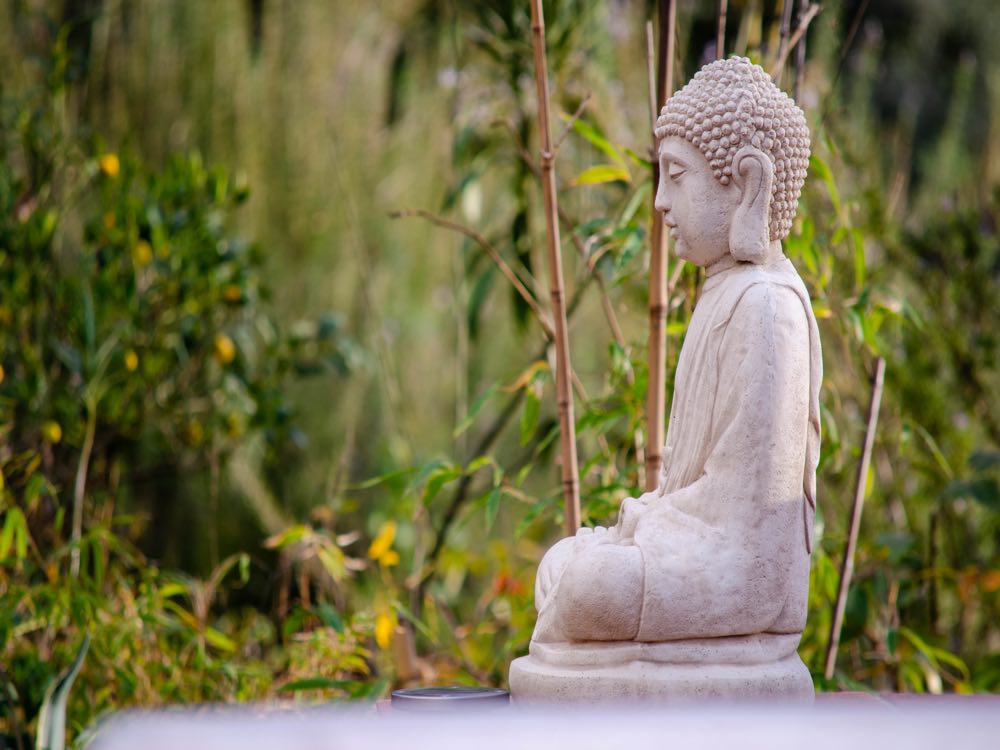The 10 Myths About Meditation

What is the truth about meditation? Does it really work? Can I benefit from it? There are so many myths about meditation and misconceptions even though meditation has landed in the mainstream now for over 50 years.
The many misconceptions can mislead us or prevent people from even starting. In this article we hope to bust some myths and misconceptions so you can enjoy learning meditation and find ways to further your practice.
The 10 Myths about Meditation
1. You have to belief in God to meditate
Meditation is an ancient practice and one does not need to belief in God to benefit from meditation. Meditation has the ability to bring nations, cultures, religions and faiths together. One can be an agnostic or atheist and receive so much out of meditating. Meditation is not limited by any belief or dogma. It opens the mind to embrace all thoughts and ideas of what meditation should be like or look like.
That meditation is religious or believing in God is a pre-requisite, is one the myths about meditation that needs to go.
2. Meditation takes too much time in order to reap the benefits.
Any amount of time that you can set aside for meditation is beneficial. The more regularly you practice meditation the more you will experience the benefits of your practice in your life. Meditation can actually help you become very efficient with your time as you will gain clarity on what your priorities are in your life. This will free up time to give to your practice. Many people come to realize this universal truth about meditating:
The more you meditate, the more time you will have.
At
times one feels the need to go deeper, to find more connection and to
feel more of the love, light and truth that is there waiting for us.
This might require us to sit down and meditate for longer periods of
time, so we can have the breakthroughs needed to get there. Still the
bottom line is:
"Practicing on a regular basis is the secret to learning meditation".
3. Meditation takes years for the results to show up.
The benefits of meditation are both immediate and long term. The more we meditate, the more regular our practice is, the deeper we can go. Each time we meditate builds on each other, like steps, each one taking us further as it builds on the last one. So the effects of the benefits will increase indeed the more and the longer you practice.
AND...if you are taught meditation in the proper way, you should start to feel the benefits right away. This is one of the most insidious myths about meditation.
4. I need to sit in a lotus position to meditate.
The best results are attained when you sit in a way that does not distract your mind due to discomfort or pain in your body. Choose a position that in a way has an alert feeling to it.
The lotus position is an ancient way of meditating that has proven to help the kundalini energy to flow freely through your whole body.
The best results are attained when you sit in a way that does not distract your mind due to discomfort or pain in your body. Choose a position that in a way has an alert feeling to it.
The lotus position is an ancient way of meditating that has proven to help the kundalini energy to flow freely through your whole body.
5. Meditation is to have no thoughts.
This is one of the greatest myths about meditation. People can get discouraged and give up their practice when they believe this myth to be true.
"Meditation is NOT a way of making your mind quiet.
It is a way of entering into the quiet that is already there — buried under the 50,000 thoughts the average person thinks every day."
Trying to stop your mind from thinking is like trying to stop a river from flowing with your bare hands...it's exhausting and almost impossible to accomplish!
When you learn how to meditate, you learn to step out of the river, and let your thoughts flow past you effortlessly. When you learn to do this, you will find that your river of thoughts slows down all by itself. No effort is required. So yes, that you need to stop your thoughts is one of the greats myths about meditation.
Read more about the truth of thoughts in meditation in "The truth of a calm mind".
6. Meditation is like hypnotizing myself.
Meditation is the antidote for hypnotism. In hypnosis the person is not aware of what is happening or what she or he is doing. Through meditation we find ourselves more and more awake and aware of each moment. It leads us to taking full responsibility for our thoughts and our feelings. It is guiding us to great clarity which leads us to higher levels of thinking.
Meditators can more easily think outside of the box. People that practice meditation on a regular basis will be harder to put under hypnosis.
7. Meditation is a way to escape the world and my problems.
Meditation if practiced deeply, guides us to take full responsibility for every way we are relating and connected to the world. It gets us connected with what is real, our True Self. It helps us to face the world and all of it's lures, distractions, false hopes and dreams and confront what is true about the world and who we are in it.
Meditation guides us deeper then the churning surface, which is filled with thoughts of the future and the past, keeping you spinning around in what is not real in the moment. If you go deeper into that place where you are connected to consciousness, you will be able to transcend the stories of your life and the world, let go of misconceptions and limiting beliefs and find peace about your place in the world.
Some people in fact use meditation to avoid feeling certain things about themselves, their life and/or the world. This approach is contradicting all true wisdom and teachings about meditation. There are a great variety of meditation techniques that focus on finding, facing, feeling and healing unresolved, suppressed emotions and feelings in order to be truly free and being able to fully connect to the inner calm and peace that resides inside of us. This is one of these myths about meditation that has done the practice much harm.
8. Meditation is difficult. Meditation is easy.
That meditation is difficult is rooted from the ancient times where the practice was reserved for the saints, monks and recluse. Times have changed and the consciousness of the planet has raised dramatically. This makes it for everyone to go within so much easier. Especially when you find the right instructor that can help you step by step to learn the practice and support you through the obstacles that might come your way.
Another one of the myths about meditation is that it is easy , is an idea promoted by the new age. You just close your eyes and say OM and there you are. This is not entirely true. Meditation for it to give you the benefits your are seeking, is a practice that needs regular practice. Practice makes master. It is through practice we learn to go within and live our life from this place of connection and consciousness inside.
But anyone can do it.
You just have to do it.
Let go of the expectation of wanting results and trust yourself.
There is a part of you that knows how to do it.
You have to have an open mind as you approach your meditation practice. The following article is a great illustration of how to do this: "How do I meditate?"
9. Nothing is happening in my meditations.
That is just not possible. There is always something happening, now your conscious mind might not be aware of it, but there is always something happening as you sit down and meditate.
Some people are disappointed when they do not see colors, visions or have some type of transcendental experience or glimpse of God. The truth of it is that every second you are going within, leaving the noise of your mind and the world behind, you are moving towards more consciousness. The results often start to show up in your life. You suddenly notice you are more calm, balanced, not so reactive, have more love for people, become a better listener and on and on. You see the effect and results show up in your life more and more as you keep meditating.
If deep and sacred experiences happen to you in meditation, nurture them, be grateful for them and let them go. Do not hang on to them or ramp up your level of expectations of what you want to have happen in your next meditation. This will cripple your future meditations. These experiences are golden gifts from God so we keep going, so we have faith. Hold them close to your heart and let them be what they are without trying to recreate the experience.
10. Meditation stops when I open my eyes.
You can keep you focus on that inner peace inside where all consciousness resides and go about your day. This way you carry your state of meditation into your daily life. It can be done and does require a lot of practice.
You also can carry that state of meditation and focus into your sleep. This is not a very known practice but you can be moving in a meditative state during your sleep. It all depends on the consciousness you fall asleep in. This is one of these myths about meditation, if broken you can expand the ways you meditate through your whole day.
back to: Meditation Tips & Facts





